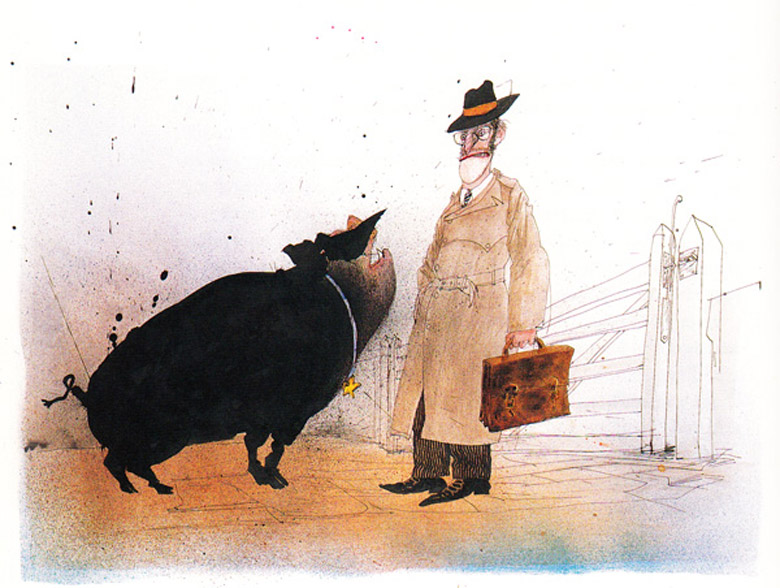In his top-grossing comedies, actor Jim Carrey displayed an antic quality that seemed to rule over his personal life as well. While other stars used interviews as opportunities to normalise themselves to the civilians in the audience, clown prince Carrey was relentless, an uncontrollable fire hose of funny faces and voices that felt not unlike demons.
All that output was exhausting, and caused many to wonder if the man was capable of calming down long enough to receive any meaningful input.
His performances in films such as the Truman Show and Eternal Sunshine of the Spotless Mind suggested that perhaps he was…
As did the revelation that he spent a lot of his childhood in his bedroom drawing — the flip side to his crazy living room performances, staged, in part, to keep an emotionally troubled family from sinking any lower. He also drew in school, aggravating teachers with unauthorised portraits.
As Carrey recalled in a 2011 interview:
After I became famous, my sixth-grade teacher sent me sketches she had confiscated. She kept them because she thought they were cute. She also knew how to harness the energy. If I was quiet, she would give me 15 minutes at the end of class to perform. Today, I’d be on Ritalin, and Ace Ventura would have never been made.
These days, the funny man seems to have turned his back on performing in favor of a more contemplative visual arts practice. His most recent acting credit is over a year old. As David Bushell’s documentary short, I Needed Color, above reveals, the quantity of Carrey’s output is still impressive, but there’s a qualitative difference where the artist is concerned.
His face and body are calm, and the crazed imperative to entertain seems to have left him. Watching him go about his work, one is reminded of cartoonist and educator Lynda Barry’s observations about the neurological connection between the ability to go down the rabbit hole of art and a child’s mental health:
I think it’s what keeps us sane. I think about how, if I’m sitting here with a kid who’s four years old and I have all these markers and I say, do you want to draw, and that kid’s too freaked out to draw, we’d be worried about that kid a little bit, wouldn’t you? We’d be worried about them emotionally. OK, on this side I have a 40-year-old, same situation, she’s too scared to draw, but we’re not worried about her. Why? Because there is a tacit understanding that something is going on when kids are playing or [drawing] that has something to do with their mental health. All of us know that if a kid is not allowed to play till he’s 21, he’s going to be a nut. He’s going to be a psychopath, actually. The brain studies they’ve done of kids in deep play show that their brains are identical to an adult’s brain that is in creative concentration. We know that play is essential for mental health. I would argue that so is drawing.
Art saves lives, right?
Carrey’s earlier success affords him the luxury of time and money to immerse himself in his new vocation without limiting himself to any one style or medium. Giant paintings, tiny sculptures, works that involve black light, squeegees, or shredded canvas stitched back together with wire are all cricket.
Given his movie star status, nasty reviews are to be expected, but approval is no longer what Carrey is seeking:
When I paint and sculpt it stops the world for me, as if all time has been suspended. My spirit is completely engaged, my heart is engaged, and I feel completely free. I think I just like creating. All of it is a portal into present, into absolute, quiet, gentle, stillness. This involvement, this presence, is freedom from concern. That’s harmony with the universe.
Those who can’t make it to Signature Galleries in Las Vegas this September 23 for a $10,000 per couple opening of Carrey’s paintings can take a gander at his work for free here.
Related Content:
Jim Carrey Sings a Pretty Damn Good Cover of The Beatles “I Am the Walrus”
Art Exhibit on Bill Murray Opens in the UK
Ayun Halliday is an author, illustrator, theater maker and Chief Primatologist of the East Village Inky zine. Follow her @AyunHalliday.












